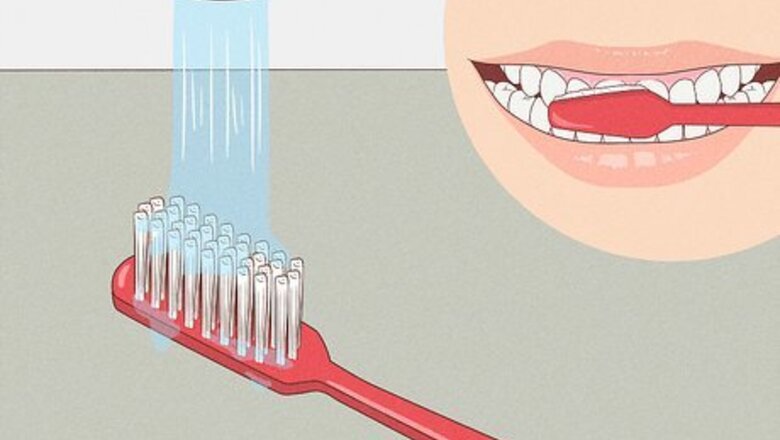
views
- In a pinch, use plain water, baking soda, or a mixture of sea salt and water on your brush to replace toothpaste.
- The bristle action of your toothbrush removes plaque and disrupts bacteria, so using toothpaste isn’t always necessary to clean your teeth.
- To freshen your breath without toothpaste, use mouthwash, chew sugar-free gum, or drink a cup of black or green tea after meals.
Brush with water.
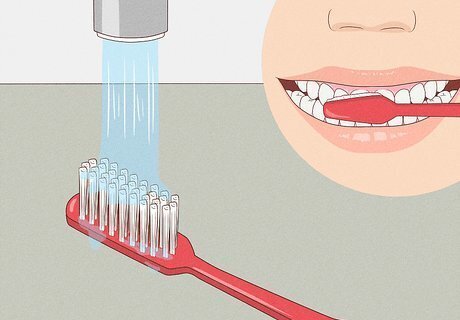
Brushing with water is better than nothing. Run your toothbrush under the sink and vigorously scrub your teeth, tongue, and gums. If you don’t have a toothbrush, simply swish water around your mouth to loosen up plaque and bacteria. This isn’t a great long-term solution, but it can help you out for a night or two. Unfortunately, brushing with water probably won’t freshen your breath.
Brush with baking soda.
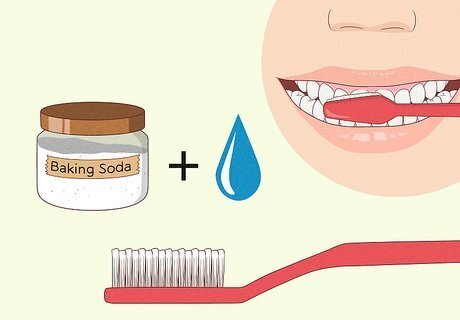
It’s a mild abrasive that can scrub off plaque and bacteria. Simply sprinkle a bit of baking soda onto your toothpaste, get it wet, then start brushing! It’s not quite as good as regular toothpaste, but it will help freshen your teeth and get rid of any buildup. If you don’t have a toothbrush available, just sprinkle the baking soda onto your finger and brush your teeth like that instead.
Scrub with sea salt.
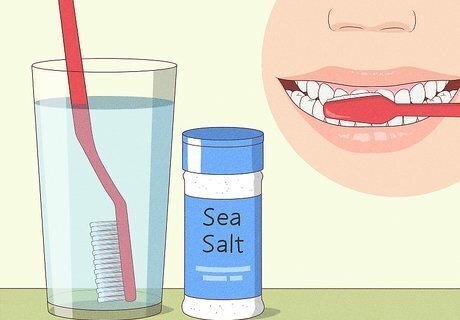
It’s another mild abrasive that can get rid of plaque. Add a pinch of sea salt to a cup full of warm water, then let it dissolve. Dip your toothbrush into the mixture and brush your teeth with it to freshen up your mouth when you don’t have toothpaste. Always dilute sea salt with water before brushing. Scrubbing your teeth with straight sea salt can damage the enamel on your teeth.
Try mouthwash.
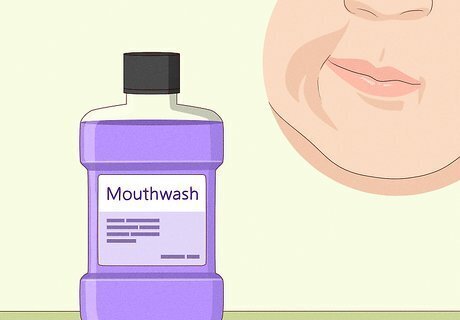
Give your mouth a quick pick-me-up with minty mouthwash. Simply pour a capful into your mouth, swish it for 60 seconds, and spit it back out. It will help freshen your breath and tide you over until you can get some toothpaste again. Try not to use mouthwash as a long-term replacement for brushing your teeth. It can help in the short-term, but nothing beats a good scrubbing with a toothbrush and toothpaste. Rinsing with mouthwash is better than nothing, especially if you don’t have a toothbrush around. It will help to freshen your breath and get rid of some of the bacteria that builds up on your teeth.
Floss if you can.
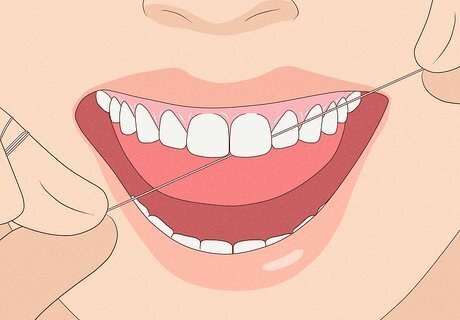
It will help remove food particles and plaque. If you don’t have toothpaste but you do have access to floss, go through and clean out in between each individual tooth. It’s not quite as good as brushing with toothpaste, but it can tide you over for a little bit. It’s always a good idea to keep some floss with you in a travel or overnight bag.
Irrigate your mouth with a water flosser.
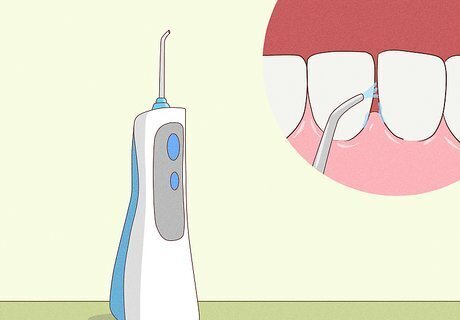
Water flossers clean between and around your teeth. Fill up the base of your water flosser with water and point it inside of your mouth. Turn the flosser on and slowly work your way across each tooth, focusing on the spaces in between each one. You can buy water flossers at most drugstores. They’re great to use if you’re at risk for cavities or gum disease.
Chew sugarless gum.
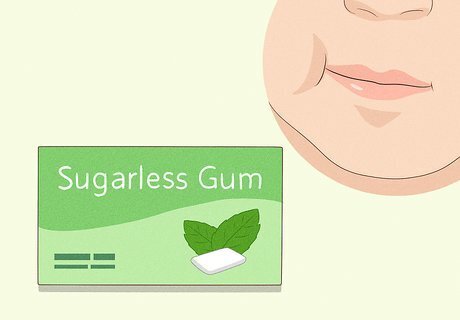
Gum helps freshen your breath and loosen up food particles. If you don’t have toothpaste, pop a piece of sugarless gum in your mouth. You’ll feel refreshed and make your breath smell great! Make sure the gum you choose is sugarless. Chewing gum with sugar in it can add plaque and bacteria to your mouth.
Eat some veggies.
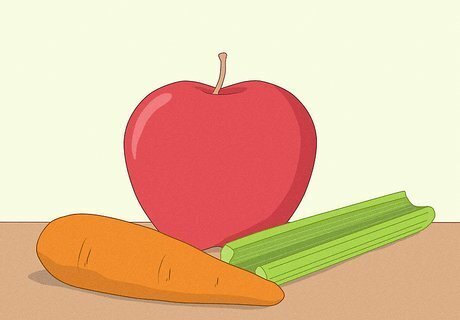
Fiber-rich vegetables can help clean your teeth. If you’re really in a pinch, reach for some celery, carrots, or even an apple to scrub away plaque and clean your gums. Be aware, though, that eating fruits and veggies probably won’t freshen your breath. Fiber-rich fruits and vegetables also help get your saliva flowing, which can wash away plaque and bacteria.
Drink green or black tea.
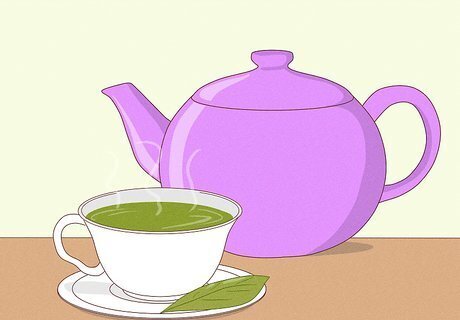
Both teas help to kill or hold off bad bacteria. Brew a pot of green or black tea and drink a cup after a meal to prevent bacteria from growing or stop it from making it worse. While drinking tea isn’t a replacement for brushing your teeth, it can be a nice way to freshen up your mouth during the day.



















Comments
0 comment